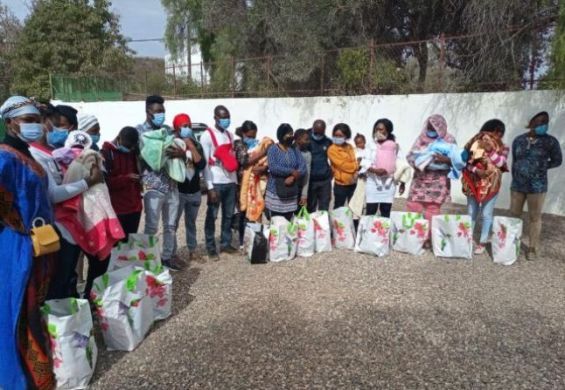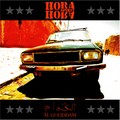The survey conducted by the United Nations High Commissioner for Refugees (UNHCR) and the High Commission for Planning (HCP) reveals that approximately 82% of refugee household heads in Morocco at the time of the study were male. They primarily fall within the 18 to 44 age group, representing 82.6% of this population.
The predominant nationalities among these household heads are Syrians (31.9%), followed by Central Africans (19%), Yemenis (16.5%), South Sudanese (8.1%), and Ivorians (4.5%). Other African and Arab nationalities are represented to a lesser extent.
While more than a third (35.3%) of Ivorians lack any documentation proving their nationality, the majority of other nationalities possess such documents. Indeed, 99.2% of Yemeni nationals, 99% of Syrians, 96.1% of South Sudanese, and 94.9% of Central Africans hold identity documents.
The marital status of refugees reveals that more than half are single, a trend particularly pronounced among African refugees. Conversely, Arab refugees, especially Syrians and Yemenis, have higher marriage rates. Additionally, a notable portion of these marriages involve Moroccan spouses, mainly among male refugees. Often, these men married to Moroccan women seek to obtain Moroccan nationality, particularly those aged 60 and above.
More than half (58.9%) of the refugee household heads left their country due to geopolitical conflicts (war, genocide) in their region. This proportion is higher among women (66%) than men (57.3%), with insecurity being the predominant reason among Ivorian refugees (86.7%), those from other African countries (79.8%), Syrians (65.1%), Central Africans (63.8%), and those from Arab countries (59.6%). Studies (24%) and job searching (11.4%) rank second and third as reasons for leaving their country of origin.
The challenges of refugee integration in Morocco
Once in Morocco, refugees face significant challenges regarding their integration, particularly concerning housing, opening a bank account, employment, and health.
About 53.4% of refugees have no document confirming their right to occupy housing, with a more pronounced precarious situation among women (64.4%). Only 41.6% have a rental contract, and 2.5% possess a property certificate. However, two-thirds of refugees consider it unlikely to lose their housing involuntarily in the next five years. In terms of personal security, about 70% feel safe in their neighborhood at night, although this perception varies by nationality, with Syrians and Yemenis feeling safer than Ivorians, Central Africans, and South Sudanese.
Financially, about 41% of refugees received aid over the past year, mainly from the UNHCR. However, most refugees consider their household to be poor (67.9%), with only 44.8% having a bank account and 14.1% being able to save part of their income.
Regarding employment, 43% of refugees are working, but about one in five is unemployed, with a majority of men in the active population. Only 1.2% benefit from government cash support, with significant access barriers related to low educational levels, residency status, and irregular work.
Finally, in terms of health, refugees struggle to access healthcare, with only 5.5% benefiting from mandatory health insurance and 23.1% reporting an unmet need for health services. The majority of refugees perceive themselves to be in good health, but nearly a third suffer from chronic illnesses, with higher rates among women and the elderly.




 chargement...
chargement...











